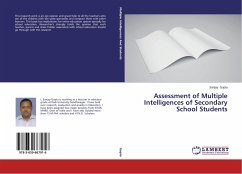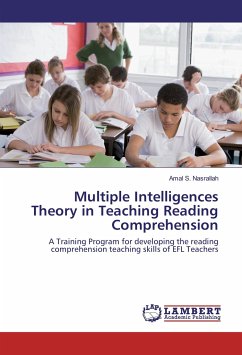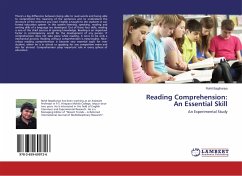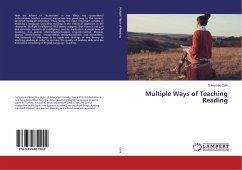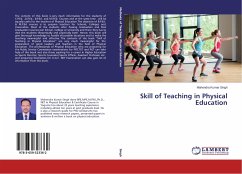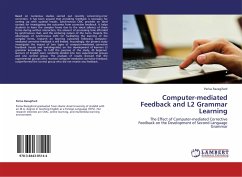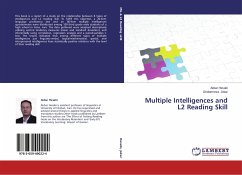
Multiple Intelligences and L2 Reading Skill
Versandkostenfrei!
Versandfertig in 6-10 Tagen
36,99 €
inkl. MwSt.

PAYBACK Punkte
18 °P sammeln!
This book is a report of a study on the relationship between 8 types of intelligences and L2 reading skill. To fulfill this objective, a 20-item language proficiency test and an 80-item multiple intelligences questionnaire were distributed among 100 third grade male students of a high school in Azna, Iran. The data gathered were analyzed descriptively utilizing central tendency measures (mean and standard deviation), and inferentially using correlation, regression analysis and a paired-samples t-test. The results indicated that among different types of multiple intelligences just linguistic-ve...
This book is a report of a study on the relationship between 8 types of intelligences and L2 reading skill. To fulfill this objective, a 20-item language proficiency test and an 80-item multiple intelligences questionnaire were distributed among 100 third grade male students of a high school in Azna, Iran. The data gathered were analyzed descriptively utilizing central tendency measures (mean and standard deviation), and inferentially using correlation, regression analysis and a paired-samples t-test. The results indicated that among different types of multiple intelligences just linguistic-verbal, logical-mathematical, spatial, and interpersonal intelligences have statistically positive relations with the level of their reading skill.



